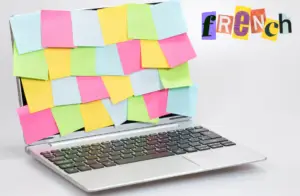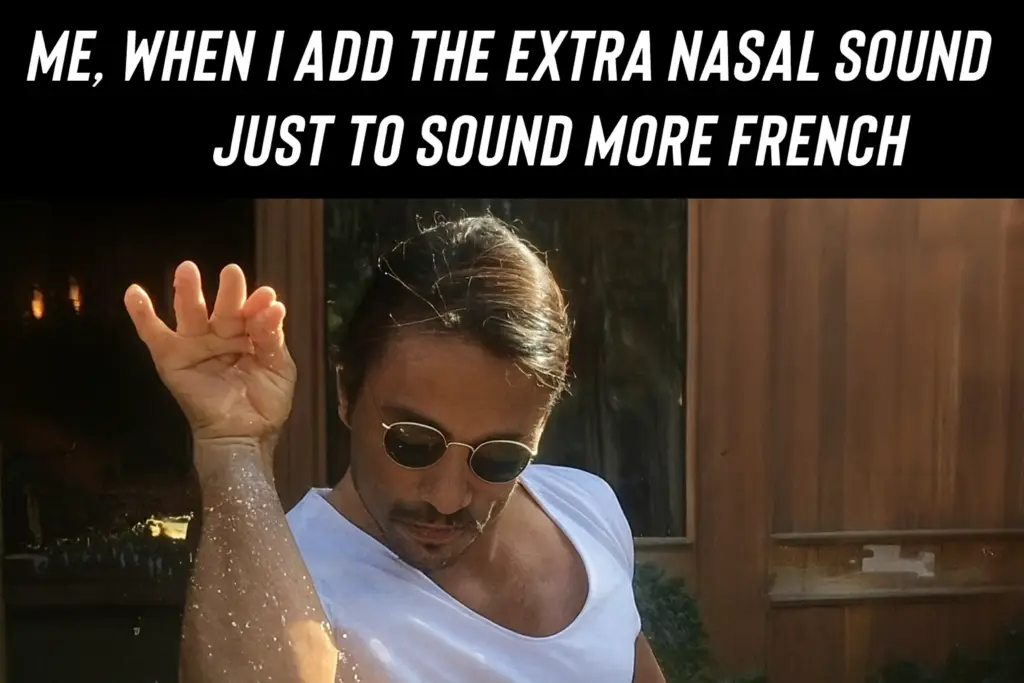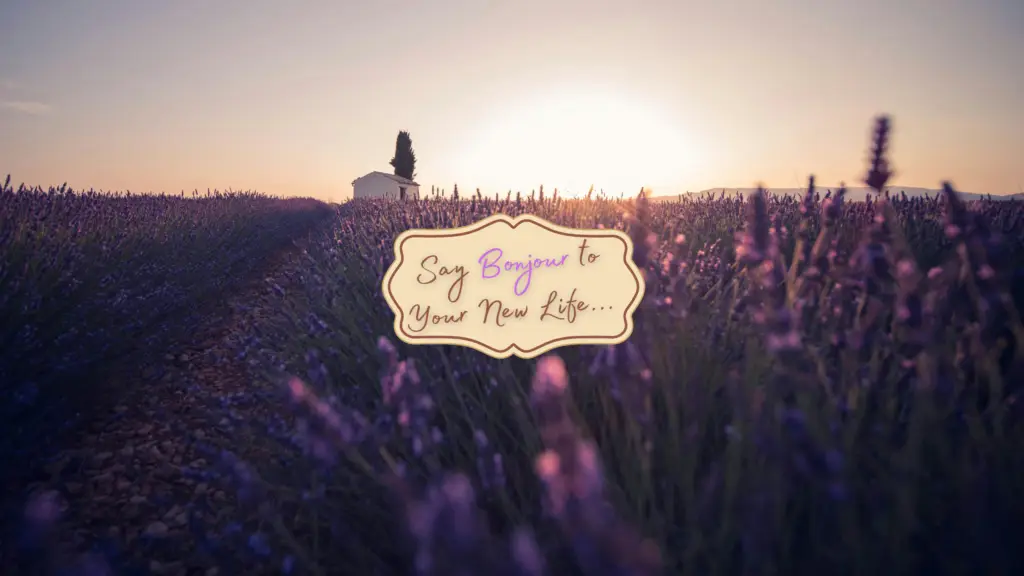As a French teacher working with expats and adult beginners, I’ve seen the same cycle play out again and again:
A motivated learner moves to France, downloads Duolingo, and starts a daily streak. Three months later, they can translate “the penguin drinks milk”… but still hesitate when ordering coffee.
It’s not just Duolingo’s fault. It uses proven methods like gamification and spaced repetition, which are essential ingredients in language learning. But here’s what’s missing: connection to real life.
If you’re learning French to actually live in France — to speak with your neighbors, visit the prefecture, or just feel at home in the world around you — you need more than memorized words and a green owl.
That’s why I’ve written this guide. Not just as a list of apps, but as a reflection on what I’ve seen truly help my students break through and start living in French. These are five apps that go beyond Duolingo — and LingoDeer is one of them.
- 1. LingoDeer: The App That Builds Real Sentences, Not Just Streaks
- 2. Babbel: If You Want Conversations, Not Quizzes
- 3. Busuu: Feedback from Humans, Not Just an Algorithm
- Learn French With an Experienced Language Coach
- 4. MosaLingua: Memory Meets Practicality
- 5. TV5MONDE’s App: Learn French with Real Voices
- Other French Learning Apps Worth Exploring
- From App to Everyday Life: How to Bring French Into Your World
1. LingoDeer: The App That Builds Real Sentences, Not Just Streaks

If Duolingo feels like playing language bingo, LingoDeer feels more like learning with a thoughtful tutor. Created by language teachers, it focuses on how the language works, not just on drilling vocabulary.
My students who use LingoDeer often tell me, “Now I understand why the verb goes at the end,” or “It finally clicked that adjectives change with gender.” That’s not something you hear from someone translating animal names on repeat.
What sets LingoDeer apart:
- Clear grammar explanations (in plain English)
- A structured path from beginner to low-intermediate
- Real-world sentence building, from day one
- Cultural context for how phrases are actually used
For expats trying to go beyond tourist French, it’s one of the few apps I truly recommend. It’s like having the logic of a French class, but in your pocket.
2. Babbel: If You Want Conversations, Not Quizzes
Babbel isn’t trying to be cute and… that’s a good thing. It’s one of the few apps that gives learners realistic dialogues from the start. It teaches how people speak, not just what the dictionary says.
Many of my students appreciate that Babbel starts with phrases like:
- “Je suis nouvelle ici.” (I’m new here.)
- “C’est ma première fois en France.” (It’s my first time in France.)
It feels more human, and more helpful, especially if you’re trying to connect with your community or explain your situation to your landlord or doctor.
It also has pronunciation tips and cultural notes that help learners avoid textbook-French syndrome (that awkward moment when what you say is technically correct but no one in France actually says it like that).
3. Busuu: Feedback from Humans, Not Just an Algorithm
One of the most frustrating things for learners is not knowing why they got something wrong. Busuu’s standout feature is that it allows real native speakers to correct your answers and send you feedback.
That feedback loop is gold.
One of my students, a retiree in the beautiful Dordogne region, used Busuu to record voice exercises — and a French speaker corrected her pronunciation with a short message. She told me it was the most encouraging part of her week.
Busuu also adapts to your level and has specific units for travel, business, and everyday life in France. For learners who feel isolated or want community feedback, it offers something most apps don’t: connection.
4. MosaLingua: Memory Meets Practicality
If you want to build a solid foundation of phrases you’ll actually use, MosaLingua is worth exploring. It’s based on spaced repetition, which is excellent for memory. And more importantly, its phrases are pulled from real situations.
Instead of reviewing random fruit, you’ll learn things like:
- “Je dois renouveler ma carte de séjour.”
- “Est-ce que vous acceptez les cartes étrangères ?”
It’s less interactive, more flashcard-focused, and not for everyone. But for learners juggling French paperwork, daily errands, and admin stress, it’s a practical ally. I often recommend it as a supplement to lessons or conversation practice.
5. TV5MONDE’s App: Learn French with Real Voices
TV5MONDE’s “Apprendre le français” app might be the best-kept secret in French learning. It’s entirely free, created by professional educators, and full of authentic audio and video from French television.
Here’s the twist: you’re not just learning vocabulary, you’re learning how real people sound. With subtitles, comprehension quizzes, and cultural clips, it’s perfect for building listening confidence.
And because it’s based on real French media, it introduces you to accents, slang, and speech speed… things most apps carefully avoid.
For expats, this is one of the most effective tools for preparing your ear and making sense of what you hear in cafés, markets, and meetings.
Sign Up for the Feel Good French Newsletter
Other French Learning Apps Worth Exploring
Every learner is different — and sometimes, remembering a new language just comes down to finding the right format. Whether you memorize best by listening, seeing, repeating, or speaking, here are 10 more apps that might suit your learning style:

- Rosetta Stone – Immersion-based, encouraging learners to understand French through images and intuition rather than translation.
- Mondly – Bite-sized lessons and chatbot-style conversations for practical, daily engagement.
- Pimsleur – Audio-focused learning that helps you build sentences and pronunciation from day one.
- Memrise – Uses short videos of native speakers and spaced repetition to help vocabulary stick.
- Clozemaster – Reinforces vocabulary through sentence-based practice, ideal for reading in context.
- HelloTalk – A social app for texting, calling, and language exchange with native speakers.
- Tandem – Pairs you with French speakers for real conversation practice via voice or video.
- Drops – Visual and vocabulary-based, with a clean interface and fast-paced sessions.
- LingQ – Offers access to real-world French content like news and podcasts, with interactive reading tools.
- Beelinguapp – Lets you read and listen to stories in French and your native language side by side.
This list isn’t exhaustive, but it gives you a wider set of tools to explore, especially if you’re still figuring out what helps French really stick for you.
From App to Everyday Life: How to Bring French Into Your World
Language apps are a great way to get started. They give you structure, build habits, and make it easy to review key concepts. But the real magic happens when you take what you’ve learned and begin to weave French into your daily life.
Here are a few practical strategies I share with my students to help make the language truly stick:

- Stick Post-its around your house. Label everyday objects in French — le miroir, la porte, la tasse. This kind of passive exposure reinforces vocabulary without pressure.
- Keep a physical notebook or grammar book. But make it lively — highlight, scribble, write questions. The more personal it becomes, the more useful it is.
- Talk to yourself in French. Describe what you’re doing while cooking or walking. Even short phrases can help build fluency over time.
- Listen to French music. Try artists like Zaz, Vianney, or Pomme. Sing along to boost pronunciation and learn vocabulary in context.
- Switch your phone to French. This small change creates daily immersion and helps you learn tech-related words naturally.
- Find someone to speak with regularly. A conversation partner, a tutor, or even a friendly neighbor — speaking is where things come alive.
- Explore French stories. Watching French films is a great start — here’s a list to help you choose:
👉 Best French Language Movies on Netflix (To Learn, Laugh, and Cry in French) - Listen to podcasts with transcripts for a double benefit: immersion and reading practice.
👉 Best Podcasts with Transcription to Improve Your French in 2025 - Read a French novel at your level. Even just a few pages a week builds vocabulary and confidence.
👉 15 Classic French Novels for Language Learners at Every Level
In the end, apps give you a foundation — but the goal is to build a life in French. The more you surround yourself with the language, the more it becomes second nature.
Déborah, Your French Teacher
French Clothing Sizes in US: A Clear Guide for American Expats
Your first weeks in France are a string of small delights and quick puzzles. The…
20 Everyday French Expressions to Sound Native
If you want to sound French, it’s not only about grammar. It’s about rhythm, melody,…
Quick French Level Test Online for Expats and Future Residents of France
Thinking about living in France? Or maybe you’ve already started learning French, but you’re not…
How to Practice Speaking French in Nice (Beginner Friendly)
You finally made it. You moved to Nice, one of the most beautiful cities on…
How to introduce yourself in French | Video With Pronunciation
Saluer et se présenter en français.
5 French Learning Apps That Go Beyond Duolingo – With LingoDeer Taking Top Spot
As a French teacher working with expats and adult beginners, I’ve seen the same cycle…






